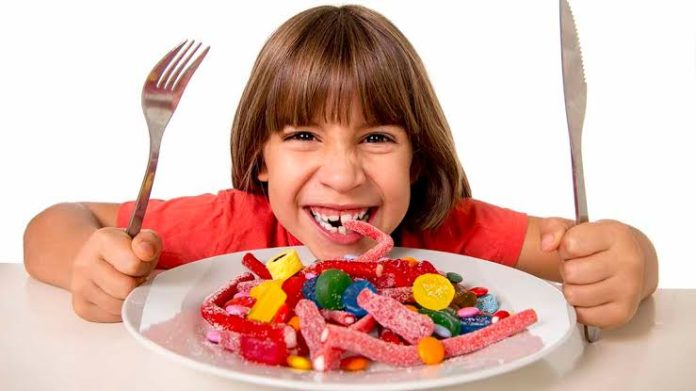Food is something we all love, but it’s also the source of some of the wildest myths out there. From “healthy” eating advice passed down through generations to whispers about what you should or shouldn’t eat, food myths are everywhere. Some sound logical, while others are outright bizarre. Today, we’re separating fact from fiction and exposing the top 10 food myths that have been misleading us for years. Let’s dig in!
Top 10 Food Myths
Eating Fat Makes You Fat

This myth has plagued dieters for decades. Many people think that eating fatty foods will automatically make them gain weight. Truth is, dietary fat is essential for your body, providing energy and helping absorb vitamins.
It’s the type of fat that matters. Healthy fats, like those found in avocados, nuts, and olive oil, are your friends. Overindulging in processed junk, not fat itself, is the real culprit behind weight gain.
Carbs Are the Enemy

The poor carbohydrate. Villainized by every trendy diet from keto to Atkins, carbs are constantly blamed for weight gain. But not all carbs are created equal. Whole grains, fruits, and veggies provide essential nutrients and energy.
It’s the refined carbs — think white bread and sugary snacks — that you need to limit. Cutting out carbs entirely? That’s just torturing yourself for no good reason.
Microwaves Kill Nutrients

Microwave skeptics, this one’s for you. The idea that microwaving your food destroys its nutrients is one of the most persistent food myths. In reality, microwaves use heat to cook food just like any
other method, and they often preserve nutrients better than boiling, which can leach vitamins into the water. So, go ahead and reheat that meal guilt-free.
Eating After 8 PM Causes Weight Gain

How many times have you been warned to steer clear of the fridge after dark? While late-night snacking on pizza and ice cream isn’t ideal, the time of day you eat doesn’t directly cause weight gain. What matters more is the total amount of calories you consume and burn in a day. So yes, you can enjoy that midnight snack — just don’t overdo it.
Brown Eggs Are Healthier Than White Eggs

Brown eggs look fancy and cost more, but nutritionally, they’re no different from their white counterparts. The color of the eggshell simply depends on the breed of the chicken. So, don’t let the “rustic” look fool you — both brown and white eggs offer the same health benefits.
Celery Burns More Calories Than It Provides

The “negative calorie food” myth has been floating around for ages, with celery often hailed as its poster child. The idea is that you burn more calories chewing and digesting celery than the veggie itself contains. While celery is super low-calorie and hydrating, no food requires more energy to digest than it delivers. Sorry, but your celery stick isn’t a magical fat burner.
Spicy Food Causes Ulcers

If you’ve ever blamed your love for hot sauce for stomach ulcers, here’s the truth: spicy food doesn’t cause ulcers. The real culprit? A bacteria called Helicobacter pylori (H. pylori) or overuse of certain
medications like NSAIDs. While spicy food can irritate an existing ulcer, it doesn’t create one from scratch. So, keep enjoying that fiery kick guilt-free (just in moderation).
Sugar Makes Kids Hyper

Parents, brace yourselves: the link between sugar and hyperactive kids is more myth than reality. Numerous studies have debunked this idea, showing no direct connection between sugar consumption and hyperactivity.
Kids are just naturally energetic, especially at parties and holidays. That said, limiting sugar is still a good idea for their overall health — just don’t blame it for their energy bursts.
Frozen Fruits and Veggies Are Less Nutritious Than Fresh

Many people turn their noses up at frozen produce, assuming fresh is always better. Here’s a surprise: frozen fruits and vegetables are often more nutritious than their fresh counterparts. Why?
They’re usually frozen at peak ripeness, locking in nutrients. Meanwhile, fresh produce may lose some of its nutrients during transportation and storage. So, stock up on frozen goodies without a second thought.
You Need to Drink 8 Glasses of Water a Day

The infamous “8 glasses of water a day” rule has been drilled into our heads, but it’s not exactly true. Hydration needs vary from person to person based on factors like activity level, climate, and diet.
Plus, water isn’t your only source of hydration — fruits, vegetables, tea, and even coffee contribute. Instead of obsessing over an arbitrary number, listen to your body and drink when you’re thirsty.
Food myths often thrive because they’re rooted in half-truths or outdated science. Add a sprinkle of misinformation from social media or well-meaning friends, and suddenly, a myth becomes “fact.” They also prey on our desire for simple answers to complex health issues. But as science evolves, it’s crucial to stay informed and question what you hear.
Top 10 Food Myths
So, next time someone warns you about eating late at night or guilt-trips you for enjoying carbs, hit them with the facts — and maybe a slice of pizza while you’re at it.Bon appétit!






